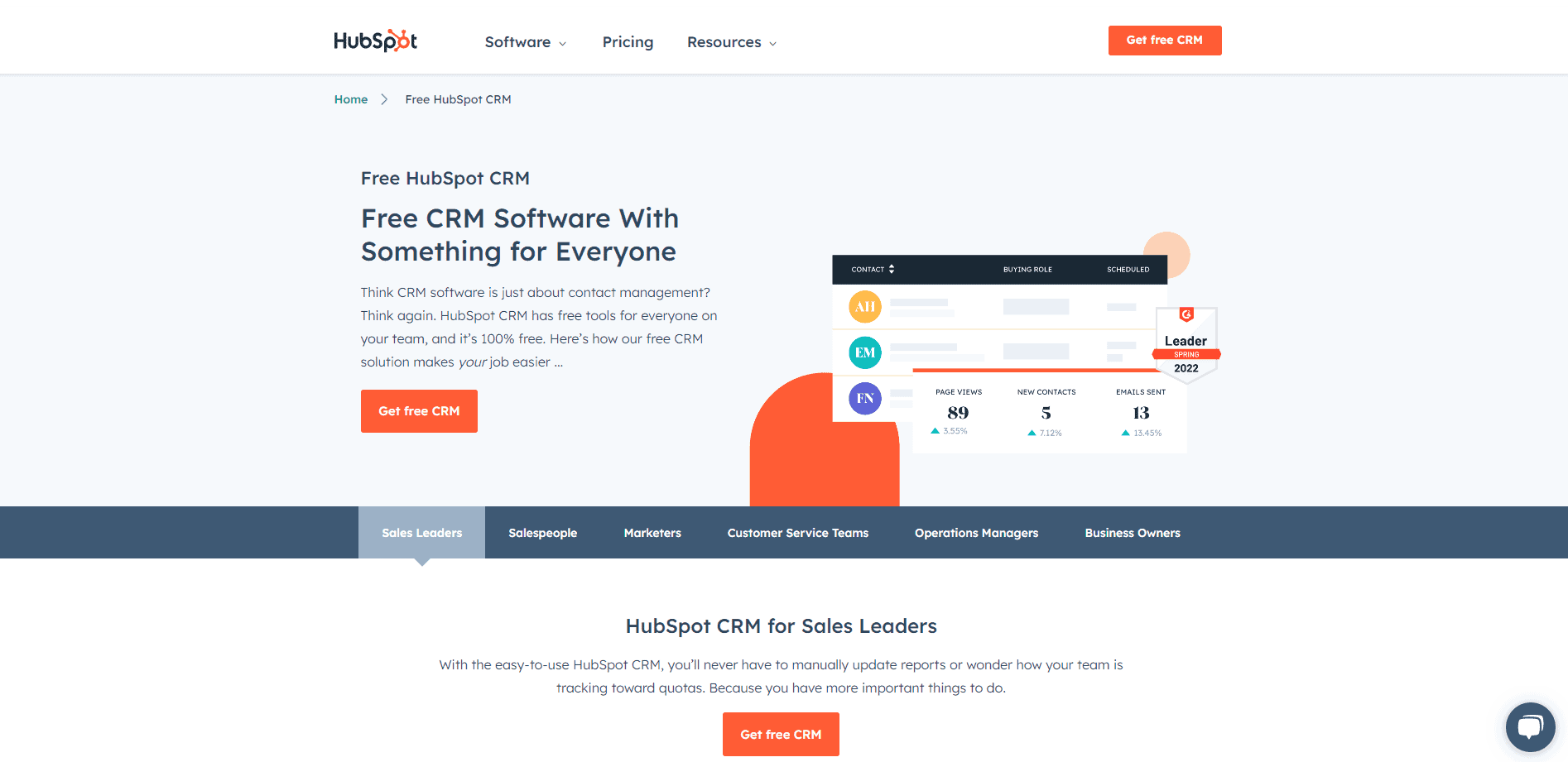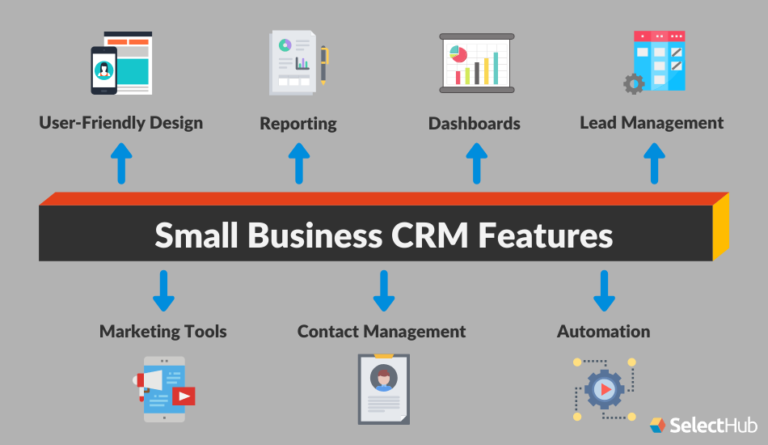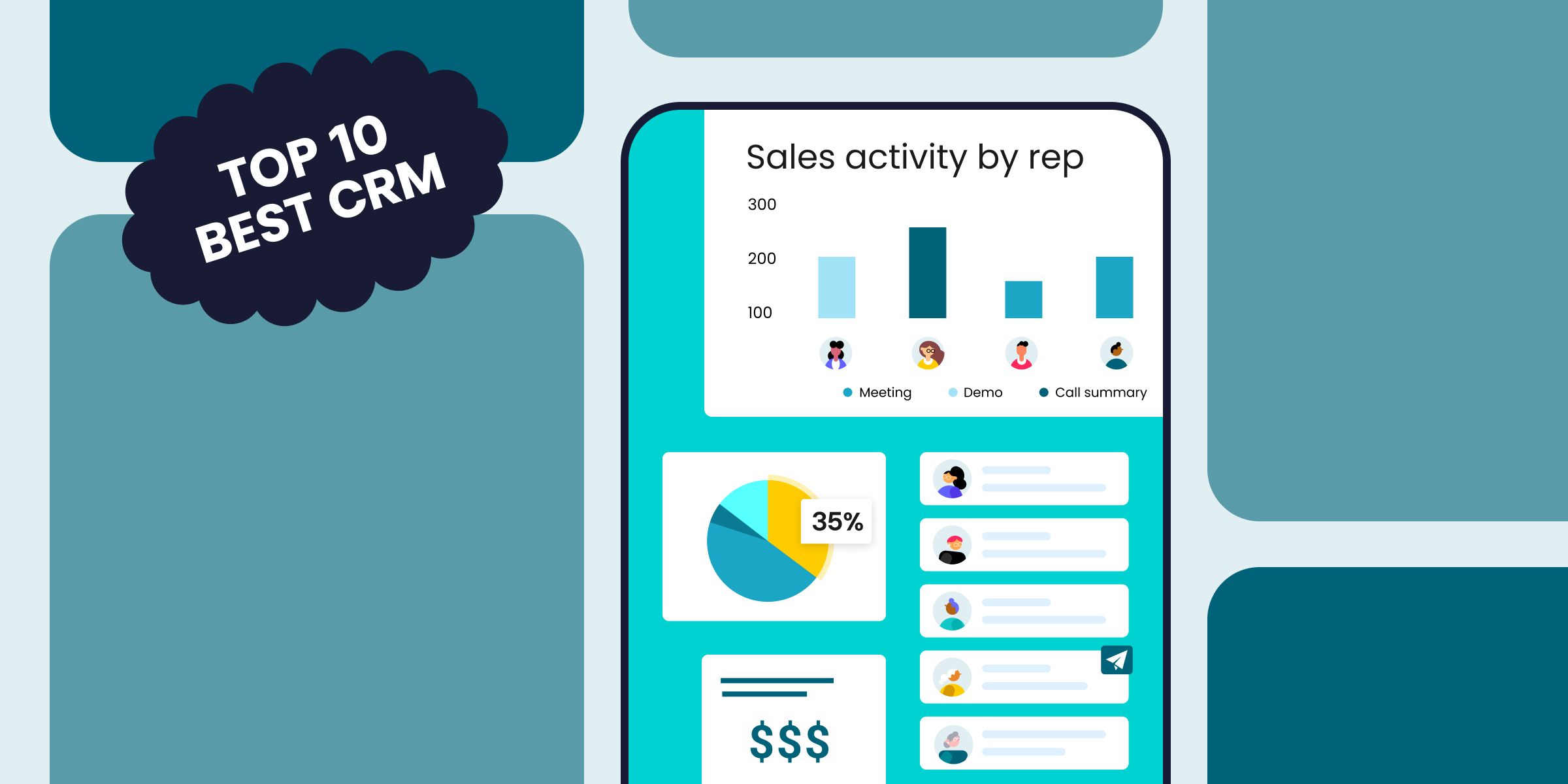Choosing the Right CRM for Your Small Business: A Comprehensive Guide
Choosing the Right CRM for Your Small Business: A Comprehensive Guide
Running a small business is a rollercoaster. You’re constantly juggling multiple tasks, from managing inventory to handling customer inquiries. One of the most critical tools in your arsenal is a Customer Relationship Management (CRM) system. It’s the central nervous system of your customer interactions, helping you organize, automate, and personalize your engagement. But with a dizzying array of options on the market, choosing the right CRM for your small business can feel overwhelming. This guide will walk you through the essential steps, considerations, and tips to help you make the best decision for your unique needs.
Why Your Small Business Needs a CRM
Before diving into the selection process, let’s understand why a CRM is so crucial for small businesses. Think of it as more than just a contact database; it’s a powerful engine for growth. Here’s how:
- Improved Customer Relationships: A CRM centralizes all your customer data – contact information, purchase history, communication logs, and more. This 360-degree view empowers you to understand your customers better, personalize interactions, and build stronger relationships.
- Increased Efficiency: CRM systems automate many time-consuming tasks, such as data entry, email marketing, and follow-ups. This frees up your team to focus on more strategic activities, like closing deals and providing exceptional customer service.
- Enhanced Sales Performance: CRMs track sales leads, manage the sales pipeline, and provide valuable insights into sales performance. This helps you identify opportunities, forecast revenue, and optimize your sales process.
- Better Marketing ROI: With customer segmentation and targeted campaigns, CRMs enable you to deliver personalized marketing messages that resonate with your audience. This leads to higher engagement rates and improved conversion rates.
- Data-Driven Decision Making: CRMs provide real-time data and analytics on customer behavior, sales performance, and marketing effectiveness. This data empowers you to make informed decisions and optimize your business strategies.
Key Features to Look for in a Small Business CRM
Not all CRMs are created equal. The features you need will depend on your specific business requirements. However, some core functionalities are essential for most small businesses:
1. Contact Management
This is the foundation of any CRM. Look for features that allow you to:
- Store and organize contact information: Names, addresses, phone numbers, email addresses, and other relevant details.
- Segment contacts: Group customers based on demographics, purchase history, or other criteria.
- Track interactions: Record all communication with customers, including emails, phone calls, and meetings.
- Import and export data: Easily transfer data between your CRM and other systems.
2. Sales Automation
Sales automation streamlines your sales process and helps your team close deals faster. Key features include:
- Lead management: Capture, track, and qualify leads.
- Sales pipeline management: Visualize your sales process and track the progress of each deal.
- Task management: Assign tasks to sales reps and track their progress.
- Email templates and automation: Send automated follow-up emails and nurture leads.
3. Marketing Automation
Marketing automation helps you nurture leads, engage customers, and drive conversions. Look for features such as:
- Email marketing: Create and send targeted email campaigns.
- Lead scoring: Identify and prioritize the most promising leads.
- Segmentation: Group customers based on their behavior and preferences.
- Marketing analytics: Track the performance of your marketing campaigns.
4. Reporting and Analytics
Data is your most valuable asset. Your CRM should provide robust reporting and analytics capabilities, including:
- Sales reports: Track sales performance, identify trends, and measure progress.
- Marketing reports: Analyze the effectiveness of your marketing campaigns.
- Customer reports: Gain insights into customer behavior and preferences.
- Customizable dashboards: Create dashboards that display the metrics that matter most to your business.
5. Integrations
Your CRM should integrate seamlessly with other tools you use, such as:
- Email providers: Gmail, Outlook, etc.
- Accounting software: QuickBooks, Xero, etc.
- E-commerce platforms: Shopify, WooCommerce, etc.
- Social media platforms: Facebook, Twitter, LinkedIn, etc.
- Other business applications: Project management, document storage, etc.
6. Mobile Accessibility
In today’s fast-paced world, you need access to your CRM on the go. Look for a CRM with a mobile app or a responsive web interface that works well on mobile devices.
Step-by-Step Guide to Selecting the Right CRM
Choosing a CRM is a significant decision. Here’s a step-by-step guide to help you navigate the process:
1. Define Your Needs and Goals
Before you start evaluating CRM options, take the time to understand your business needs and goals. Ask yourself:
- What are your current pain points? What processes are inefficient or time-consuming?
- What do you hope to achieve with a CRM? Increased sales? Improved customer service? Better marketing ROI?
- What are your key performance indicators (KPIs)? How will you measure the success of your CRM implementation?
- Who will be using the CRM, and what are their specific requirements? (Sales, marketing, customer service, etc.)
Document your requirements in detail. This will serve as your benchmark for evaluating different CRM solutions.
2. Assess Your Budget
CRM pricing varies widely, from free options to enterprise-level solutions. Determine your budget upfront. Consider the following cost factors:
- Subscription fees: Most CRMs operate on a subscription basis, with monthly or annual fees based on the number of users and features.
- Implementation costs: Some CRMs require professional implementation services, which can add to the overall cost.
- Training costs: You may need to invest in training to ensure your team can effectively use the CRM.
- Customization costs: If you need custom features or integrations, you may incur additional costs.
Be realistic about your budget. Factor in both the initial costs and the ongoing expenses. Consider the long-term value of the CRM and how it will contribute to your business growth.
3. Research CRM Options
Once you understand your needs and budget, it’s time to research the available CRM options. Here are some popular CRM providers for small businesses:
- HubSpot CRM: A popular, free CRM with robust features for sales, marketing, and customer service.
- Zoho CRM: A comprehensive CRM with a wide range of features and affordable pricing plans.
- Salesforce Sales Cloud: A leading CRM with a strong focus on sales automation and enterprise-level features.
- Pipedrive: A sales-focused CRM with a visual pipeline and user-friendly interface.
- Freshsales: A sales CRM with built-in phone, email, and chat features.
- Insightly: A CRM designed for small businesses with a focus on project management and sales.
- Agile CRM: A comprehensive CRM with marketing automation, sales tracking, and customer service features.
Read reviews, compare features, and consider the strengths and weaknesses of each option.
4. Evaluate CRM Features
Compare the features of different CRMs against your documented requirements. Pay close attention to:
- Contact management: Does it meet your needs for storing and organizing contact information?
- Sales automation: Does it offer the features you need to streamline your sales process?
- Marketing automation: Does it provide the tools you need to nurture leads and engage customers?
- Reporting and analytics: Does it offer the reports and dashboards you need to track your performance?
- Integrations: Does it integrate with the other tools you use?
- Ease of use: Is the interface intuitive and easy to navigate?
- Scalability: Can the CRM grow with your business?
- Customer support: What level of support is provided?
5. Consider User Experience
The user experience is crucial for CRM adoption. If the CRM is difficult to use, your team won’t use it, and you won’t see the benefits. Consider:
- Ease of use: Is the interface intuitive and user-friendly?
- Customization options: Can you customize the CRM to fit your specific needs?
- Training and onboarding: Does the CRM provider offer training and onboarding support?
- Mobile accessibility: Is the CRM accessible on mobile devices?
Look for CRMs with a clean and intuitive interface that your team will enjoy using.
6. Test Drive the CRM
Most CRM providers offer free trials or demos. Take advantage of these opportunities to test drive the CRM before you commit. Create a test account and:
- Experiment with the features: Try out different features and see how they work.
- Import your data: See how easy it is to import your existing data into the CRM.
- Test the integrations: Verify that the CRM integrates with the other tools you use.
- Get feedback from your team: Ask your team to test the CRM and provide feedback.
This hands-on experience will help you determine if the CRM is the right fit for your business.
7. Consider Customer Support and Training
When selecting a CRM, consider the level of customer support and training provided. Look for a provider that offers:
- Reliable customer support: Access to knowledgeable support staff who can answer your questions and resolve any issues.
- Comprehensive training resources: Tutorials, documentation, and webinars to help you learn how to use the CRM.
- Onboarding assistance: Support with the initial setup and implementation of the CRM.
Good customer support and training can significantly improve your CRM adoption rate and ensure that you get the most out of your investment.
8. Prioritize Security and Data Privacy
Data security and privacy are paramount. Ensure that the CRM provider:
- Uses robust security measures: Encryption, firewalls, and other security protocols to protect your data.
- Complies with data privacy regulations: GDPR, CCPA, and other relevant regulations.
- Offers data backup and recovery: Procedures for backing up your data and recovering it in case of a disaster.
- Has a clear privacy policy: Understand how your data will be used and protected.
Choose a CRM provider that prioritizes data security and privacy to protect your sensitive customer information.
9. Check for Scalability
Your CRM should be able to grow with your business. Consider:
- User limits: Does the CRM support the number of users you need now and in the future?
- Data storage limits: Does the CRM provide enough storage for your growing data needs?
- Feature availability: Does the CRM offer the features you’ll need as your business grows?
- Integration capabilities: Can the CRM integrate with other tools as your needs evolve?
Choose a CRM that can accommodate your future growth and expansion plans.
10. Make a Decision and Implement
After careful consideration of all the factors, it’s time to make a decision. Choose the CRM that best meets your needs and budget. Once you’ve selected a CRM, it’s time to implement it.
Here’s a general implementation plan:
- Plan your implementation: Develop a detailed plan outlining the steps involved, including data migration, user training, and testing.
- Migrate your data: Import your existing customer data into the CRM.
- Customize the CRM: Configure the CRM to fit your specific needs.
- Train your team: Provide your team with training on how to use the CRM.
- Test and refine: Test the CRM and make adjustments as needed.
- Go live: Roll out the CRM to your team.
- Monitor and evaluate: Track your progress and measure the results.
Successful CRM implementation requires careful planning, execution, and ongoing monitoring.
Tips for a Smooth CRM Selection and Implementation
Here are some additional tips to help you choose and implement a CRM successfully:
- Start small: Don’t try to implement everything at once. Start with the core features and gradually add more functionality as your team becomes comfortable.
- Involve your team: Get input from your team throughout the selection and implementation process. This will help ensure that the CRM meets their needs and that they are invested in using it.
- Provide ongoing training: Offer ongoing training and support to your team to help them stay up-to-date on the latest features and best practices.
- Clean your data: Before importing your data into the CRM, clean it up to ensure accuracy and consistency.
- Set clear expectations: Communicate your goals and expectations to your team.
- Be patient: CRM implementation takes time. Don’t expect to see results overnight.
- Continuously evaluate: Regularly review your CRM usage and make adjustments as needed.
- Don’t be afraid to switch: If your current CRM isn’t meeting your needs, don’t be afraid to switch to a different one.
Common Mistakes to Avoid
Avoid these common mistakes when selecting a CRM:
- Choosing a CRM based on price alone: The cheapest CRM isn’t always the best. Consider the value and features offered.
- Overlooking the importance of user experience: A clunky CRM will be ignored by your team.
- Failing to define your needs: Without clear requirements, you’ll end up with a CRM that doesn’t meet your needs.
- Not involving your team: Your team’s input is crucial for successful CRM adoption.
- Underestimating the time and effort required for implementation: CRM implementation takes time and effort.
- Ignoring customer support and training: Good support and training are essential for success.
The Future of CRM for Small Businesses
The CRM landscape is constantly evolving. Here are some trends to watch:
- Artificial intelligence (AI): AI is being used to automate tasks, personalize interactions, and provide insights.
- Mobile CRM: Mobile CRM is becoming increasingly important as businesses become more mobile.
- Integration with social media: CRMs are integrating with social media platforms to provide a more holistic view of customers.
- Focus on customer experience: CRM is becoming more focused on delivering exceptional customer experiences.
Staying informed about these trends will help you choose a CRM that meets your future needs.
Conclusion: Empowering Your Small Business with the Right CRM
Choosing the right CRM is a pivotal decision for any small business. By understanding your needs, assessing your budget, researching your options, and following the steps outlined in this guide, you can select a CRM that empowers your team, improves customer relationships, and drives business growth. Remember to prioritize user experience, data security, and scalability. With the right CRM in place, your small business can thrive in today’s competitive market.
Don’t be afraid to invest the time and effort required to find the perfect fit. The benefits of a well-chosen CRM – improved efficiency, stronger customer relationships, and increased sales – will be well worth it. Start your journey to CRM success today!




